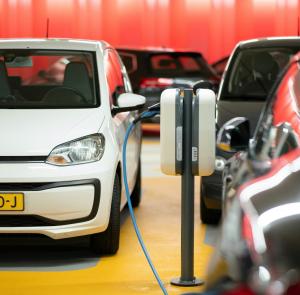In the declaration issued following their latest meeting in Milan, G7 transport ministers have recognized the role of UNECE in advancing sustainable low-carbon mobility. In particular, they welcomed the recently adopted UNECE Strategy on Reducing Greenhouse Gas Emissions from Inland Transport, which aims to set a medium- and long-term course towards net-zero GHG emissions from inland transport by 2050.
“The declaration of G7 Transport Ministers recalls the urgent need to decarbonize the transport sector and recognizes the role that the recently adopted UNECE strategy will play, since inland transport accounts for 72% of overall annual GHG emissions in the transport sector,” said UNECE Executive Secretary Tatiana Molcean. “Through its regulatory work, UNECE will continue to foster the development of sustainable low-carbon mobility, and the deployment of innovation in the sector, for the benefit of both developed and developing countries.”
The strategy gives priority to public transport in combination with cycling and walking for passenger transport and enables new approaches to urban freight solutions, as well as improving vehicles, infrastructure and operations, including border crossing operations, to make the inland transport sector more efficient. The strategy will be subject to a five-yearly review, with the first review due in 2029.
Acknowledging that the transport sector has accounted for the majority of fossil fuel use for decades, the G7 transport ministers affirmed their intent to continue and strengthen cooperation with relevant United Nations bodies and agencies, including UNECE, to develop internationally harmonized safety and emissions regulations, and guidelines for vehicles to transition away from fossil fuels.
This includes applying artificial intelligence (AI) solutions in the transport sector, as well as high cybersecurity standards, where UNECE also takes the lead in international regulatory work. Its dedicated Working Party on Automated/Autonomous and Connected Vehicles (GRVA) brings together countries from all around the world, including, among others, the European Union, Australia, Canada, China, India, Japan, Korea, South Africa and USA, to develop internationally harmonized regulations, resolutions and guidelines governing automated driving functionalities and cybersecurity provisions.
Earlier this year, this Working Party adopted the draft of a new regulation that defines provisions for the approval of vehicles with Driver Control Assistance Systems (DCAS) and provides minimum safety requirements for vehicles equipped with the Advanced Driver Assistance System (ADAS), such as lane keep assist. It also extended its cyber security management regulation to motorcycles and scooters.
In this context, the G7 transport ministers underlined the importance of UNECE’s regulatory work carried out within its World Forum for the Harmonization of Vehicle Regulations (WP.29), namely the safety of automated, electrified, and connected vehicles, battery durability of electrified vehicles and safety of hydrogen fuel cell vehicles, as well as GHG emissions assessment over the entire vehicle life cycle.
Many of the 61 UN inland transport legal instruments under the purview of UNECE already support or have the potential to improve the sustainability of transport and tackle climate change.
For example, UN regulations adopted by UNECE’s WP.29 already enable harmonized measurement of vehicles fuel consumption and tailpipe CO2 emissions and the widespread introduction of alternative fuel sources, including electric, hybrid and hydrogen.
UNECE is also developing a globally harmonized methodology to determine vehicles’ carbon footprint throughout their life cycle, and is working to regulate the climate impact of some 23 million used vehicles, which were exported in 2015-2020, around 66% of which to developing and transitional countries.
This year’s declaration builds up on recurrent references of G7 transport ministers’ declarations over the past 10 years to the work of UNECE and its World Forum for the Harmonization of Vehicle Regulations.
